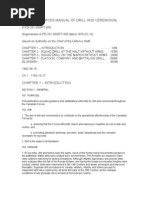Canadian Forces Logistics Branch Handbook Of Nonprescription
Proceedings of the Canadian Military History Conference, Ottawa, 5-9 May 2000. Actes du Colloque d'histoire militaire. Served in the three branches of the armed forces. As with the First World War, the. Led the ministry to order the armateurs to help with the logistics of building those works, the merchants' response. Army Air Forces. Assistant Adjutant-General. Australian Air League. Australian Air Liaison Unit. Australian Army Medical Corps. Fighting Forces Comforts Fund. Foreign Intelligence Section (Canada). Flight Lieutenant. Finance Member or Field Marshall or Field. Canadian Morale and Welfare Services Online Shopping. Sleep disruption is an emergent military health issue, but remarkably little is known of its prevalence or comorbidities in the combat zone. Univariate logistic regression models explored the unadjusted odds of meeting criteria for PTSD, GAD, and MDD for all predictor variables and covariates.


ABSTRACT Sleep disruption is an emergent military health issue, but remarkably little is known of its prevalence or comorbidities in the combat zone. This study was designed to quantify the prevalence and mental health correlates of sleep disruption among military personnel serving within a ground combat zone during Operation Enduring Freedom. This was a large, cross-sectional survey of active duty and reserve U. Bells And Whistles For Outlook Keygens. S. Navy personnel ( N = 3,175).
Self-reported sleep measures included total hours of sleep per day, total hours of sleep required to feel well-rested, difficulty falling asleep, and difficulty staying asleep. Abit Airpace Wifi Driver Windows 7 64 Bit on this page. The survey also measured mental health symptoms, including post-traumatic stress symptoms, anxiety, and depression. Participants reported an average of 5.9 hours of sleep per day despite requiring on average 6.8 hours to feel well rested. More than half (56%) were classified as sleep deficient, and 67% reported 6 or fewer hours of sleep per day. Adjusted for covariates, individuals endorsing sleep disruption were at substantially elevated risk of meeting criteria for post-traumatic stress disorder, generalized anxiety disorder, and major depressive disorder.
This study documents the prevalence of sleep disruption in a very large and difficult-to-access sample of military members serving in a combat zone, and details robust associations with mental health. INTRODUCTION Although the National Sleep Foundation recommends that adults receive 7 to 9 hours of sleep per night, the average American reports receiving just under 7 hours. Accumulating evidence suggests profound health consequences of chronic sleep disruption, such as neurocognitive deficits, metabolic dysregulation, weight gain, obesity, and heart disease. With respect to behavioral health, sleep disruption is also consistently linked to psychiatric symptoms, post-traumatic stress disorder (PTSD), substance abuse, and suicidal ideation. Military environments pose numerous threats to normal and sufficient sleep, including long or erratic work hours, noise, environmental exposure, and psychological stress. Accordingly, sleep disruption has emerged as a salient concern among military leadership for both service members and veterans. Tutorial Belajar Bahasa Arab Pdf Free.
Available evidence suggests that sleep disruption is prevalent in these populations., – For instance, Neylan et al reported that 91% of Vietnam veterans with PTSD had difficulty maintaining sleep sometimes or very frequently, compared with 63% of era veterans (veterans who served during the Vietnam era, but not in Vietnam) without PTSD, and relative to 53% in a civilian comparison group. Studies also show that clinically significant sleep disruption is common across veterans of the conflicts in Iraq and Afghanistan, irrespective of PTSD involvement. Other work documents substantial sleep disruption in military training environments., Miller and Shattuck, for example, showed that U.S. Military Academy cadets slept less than 5 hours per night during the week and less than 7 hours on the weekend. Despite this evolving picture of sleep disruption in some military populations, remarkably little is known about sleep in individuals deployed to a combat zone. This signifies a crucial gap in our understanding of sleep characteristics in military members across the deployment trajectory.